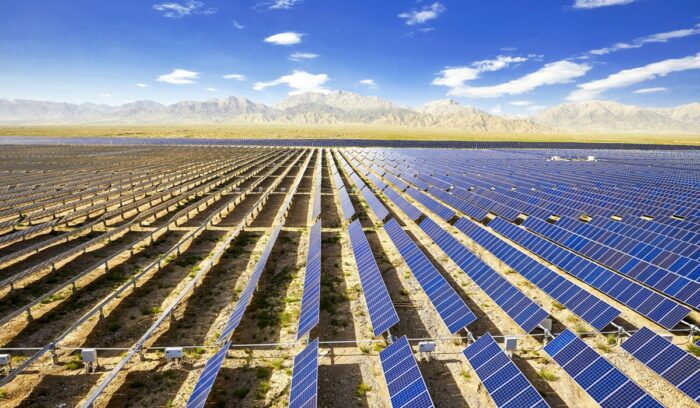Good News for Humankind
The world’s latest milestones for climate, justice, peace, health, and more
July 29 – August 4 2024 C.E.
Wind and solar capacity overtake coal in China in historic first
In what is being hailed as a “pivotal moment” and a “historic first”, the accumulated capacity of wind and solar projects in China has overtaken coal for the first time, and solar capacity alone is predicted to overtake coal within two years. Rystad Energy says it has analyzed the latest data from China’s National Energy Administration and says the additions of wind and solar have outstripped coal in China by a factor of 16 in the first half of 2024 – as new coal additions slump to just eight gigawatts.
U.K. fee leads to 80% drop in plastic bag litter on beaches
A new survey, undertaken by the Marine Conservation Society, found just one plastic bag, on average, for every 100 meters of coastline, down from five plastic bags in 2014. It was roughly a decade ago that governments began requiring retailers to charge consumers for single-use plastic bags.
South Africa passes its first sweeping climate change law
South African President Cyril Ramaphosa has signed into law a broad climate change act that will set caps for large emitters and require every town and city to publish an adaptation plan. The Climate Change Bill aims to enable South Africa to meet its emissions reduction commitments under the Paris climate agreement. South Africa, which is the world’s most carbon-intensive major economy and among the top 15 greenhouse gas emitters, is on track to miss those targets because of to its heavy reliance on coal for electricity.
Peru establishes new Indigenous reserve in the Amazon for peoples in isolation
Indigenous organizations in Peru’s Amazon have achieved a milestone in a campaign that has lasted for almost two decades. Indigenous peoples living in isolation and initial contact (PIACI) will be protected within the recently declared Sierra del Divisor Occidental Indigenous Reserve, a territory they’ve long inhabited — and place where they have historically faced pressures that threaten their existence. The Indigenous reserve spans over 1.2 million acres in the Peruvian departments of Ucayali and Loreto.
U.S. Food and Drug Administration approves blood test to screen for colon cancer
The test, known as Shield, isn’t meant to replace colonoscopies, but is generating enthusiasm among doctors who say it has the potential to boost the dismal rate of screenings for the second-highest cause of cancer death in the United States. Shield has previously been available to doctors as a screening tool, at an out-of-pocket cost of $895. With the FDA approval, Medicare and private insurance companies are much more likely to cover the cost of the blood test, making it more widely accessible for patients.
China begins producing solar energy cells for first time (1975 C.E.)
The first solar cell factories were located in Ningbo and Kaifeng. Annual national solar capacity installations were still low, as only 0.5 kW of photovoltaic capacity was installed. This increased to 8 kW in 1980, 70 kW in 1985, 500 kW in 1990, and 1550 kW in 1995. Soon, China would become the world’s undisputed leader in solar energy production.
Wind and solar power account for more than half of China’s energy consumption (2032 C.E. ???)
Long the world’s leader in total renewable energy generation, China finally achieves the historic milestone of generating a majority of its power from clean, renewable sources in a major win for humanity’s fight against climate change.
These milestones have been added to the Archive of Human Genius – our database of social change milestones – past, present & future.

